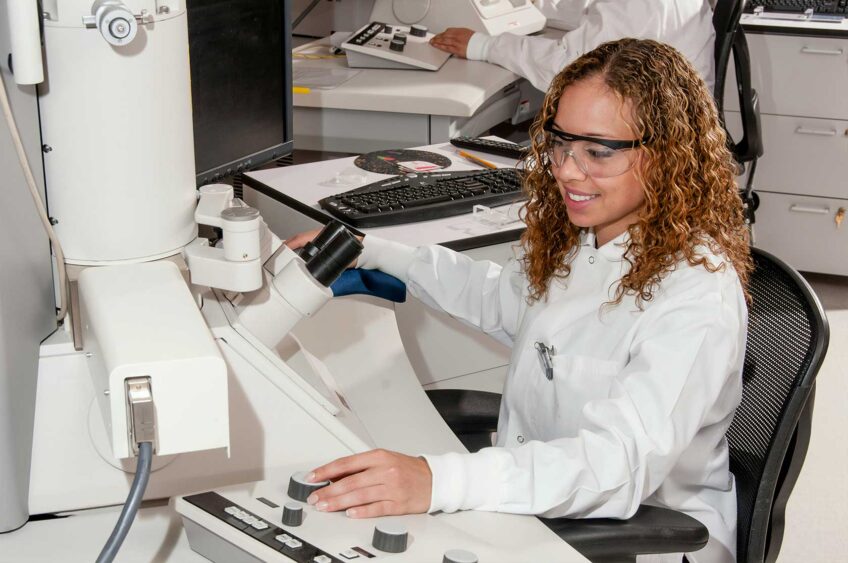WASHINGTON — Two years after the government urged that HIV tests become as common as cholesterol checks, there are small gains. But still, one in five people infected with the AIDS virus does not know it, scientists said last week.
Eleven states that once required special consent for HIV testing have changed their laws, a key step to making an HIV test part of the standard battery that patients expect.
But HIV specialists meeting last Thursday said other barriers include physician confusion about the ease of today’s rapid tests, which can cost as little as $15, even though many patients seem to accept them.
No more than 100 of the nation’s 5,000 emergency rooms routinely test for HIV in patients who are not critically ill, said Dr. John Bartlett of Johns Hopkins University, who co-chaired the Forum for Collaborative HIV Research meeting. Yet because so many HIV patients are poor or uninsured, ERs are the health care setting most likely to find them.
And while every pregnant woman is supposed to be tested so her fetus can be protected if the mother is found to have AIDS, about 40 percent are not tested, he said.
“Those are what we call missed opportunities,” Bartlett said. Today, the test is “much better, it’s much easier, it’s much cheaper. The treatment is really great now.”
Just over 1.1 million Americans are estimated to have HIV and 232,000 do not know it, according to the Centers for Disease Control and Prevention (CDC).
The CDC for years recommended routine testing mainly for people at high-risk, such as injecting drug users. Then, finally, came drugs potent enough to keep HIV patients healthy for years, postponing the slide into full-blown AIDS.
Yet nearly half of new infections still were being discovered too late for patients to benefit. Not to mention that people who don’t know they’re infected unwittingly spread the virus.
So in September 2006, the CDC recommended routine testing for everyone ages 13 to 64, whether they think they’re at risk for HIV or not.
There is no nationwide data yet on the new guidelines’ impact, CDC’s Dr. Bernard Branson told The Associated Press.
But Branson listed encouraging signs:
• New York City’s Health and Hospitals Corp., the nation’s largest municipal health system, has nearly tripled HIV testing, and late diagnoses have dropped by about a third.
• New York’s state Medicaid program has increased testing by 30 percent.
• Early results from a federal survey suggest 2.4 million more people in 2007 said they had ever been tested for HIV than said so in 2006.
• President George W. Bush in October signed a law allowing Veterans Administration clinics to ease testing requirements.
“I don’t think anyone at CDC anticipated that we would test the whole country in a single year,” Branson said.
But in pilot projects around the country, “people are taking the recommendations to heart and implementing them as much as was feasible for them,” he added. Moreover, “we find people are very receptive to being tested, and there was concern about that before.”
Indeed, studies presented last Thursday suggest more than 80 percent of emergency-room patients were amenable to HIV tests, while most ER workers opposed testing them. Why? Presumably because ERs are so busy, and there is confusion about how much HIV counseling is needed.
Bartlett demonstrated how to quickly give people a chance to either opt out or request counseling: “Mr. Jones, you’re going to have a cholesterol test, a blood count, and an HIV test — and by the way we do the HIV test on everybody because that’s what the CDC has recommended. Is there any part of this that you want more information about or you don’t want to have?”
(Associated Press)






